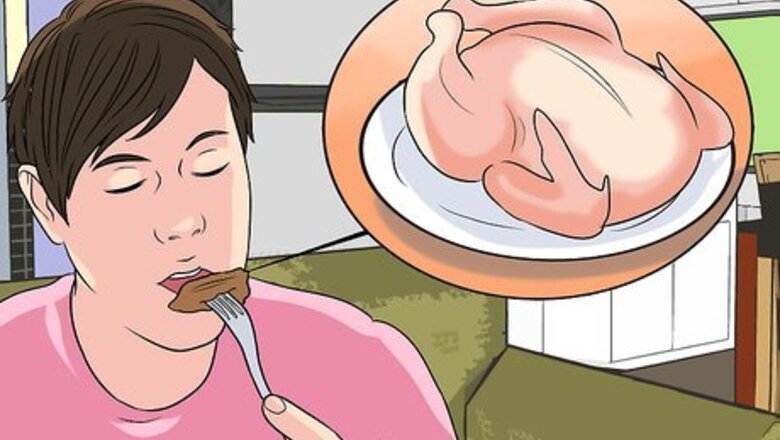
views
X
Trustworthy Source
University of Rochester Medical Center
Leading academic medical center in the U.S. focused on clinical care and research
Go to source
If you need to lower your SHBG levels, work with your doctor to figure out dietary changes. You can also take nutritional supplements, but remember to consult your healthcare provider first.
Making Dietary Changes
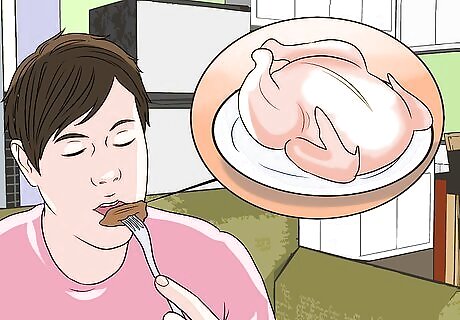
Eat the right amount of protein. If your SHBG levels are too high, it’s possible that you are not eating enough protein. Talk to your doctor about the right amount of protein for you. The average adult should consume 0.8 g of protein for every kilogram of body weight . For example, if you weigh 165 lbs you should consume 60 grams of protein a day. Make sure that you consume healthy sources of protein. Too much protein is not good for your body, but you may require more protein if you exercise regularly. Make sure to talk to your doctor before making any major dietary changes.
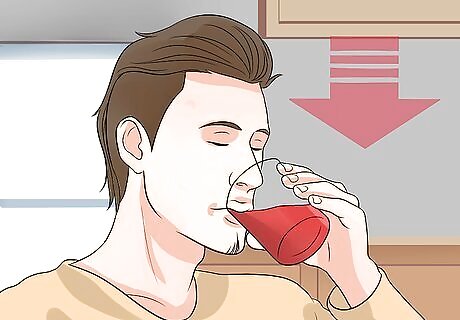
Limit your alcohol intake. Drinking too much alcohol can cause your SHBG levels to rise. Binge drinking in particular can prevent you from lowering your levels. Moderate drinking guidelines allow for 1 drink per day for women, and up to 2 drinks per day for men. Examples of 1 drink include 12 ounces of beer, 5 ounces of wine, and 1.5 ounces of distilled liquor, such as vodka.
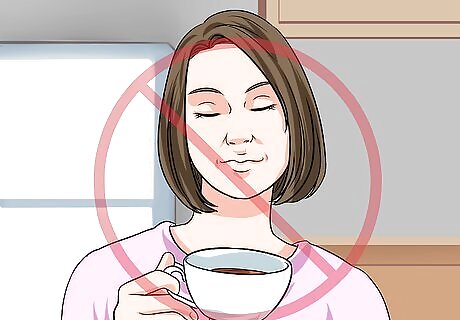
Decrease the amount of caffeine you consume. Too much caffeine can limit your ability to lower your SHBG levels. If you’re enjoying too much coffee in the morning, you’ll want to cut back. It is generally considered safe for adults to consume up to 400 mg of caffeine per day. That is the equivalent of about 4 cups of coffee. Consider drinking green tea instead of coffee in the morning.

Replace simple carbs with complex carbs. There is some debate about how carbohydrate consumption relates to your SHBG levels. Some recommend going low-carb, while others promote eating plenty of healthy carbs. It’s a safe bet to assume that switching out simple carbs for more complex ones will benefit your health. Cut out carbs such as white rice, potatoes, and white bread. Look for high fiber low-glycemic index foods instead, such as quinoa, sweet potatoes, and whole-grain bread. Consult your doctor before making any drastic changes to your diet.
Consulting Your Doctor
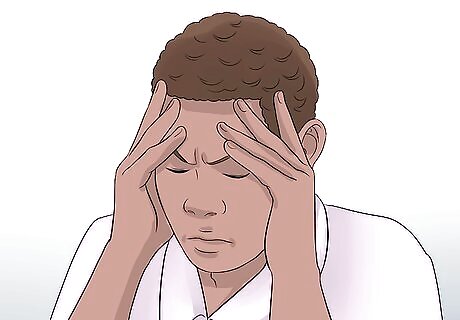
Know the symptoms of high SHBG levels. If your SHBG level is too high, that is generally an indicator that your testosterone is too low. Symptoms can include low libido, erectile dysfunction (in males), hot flashes, and loss of body hair. Additional symptoms include poor concentration, insomnia, moodiness, and loss of energy.
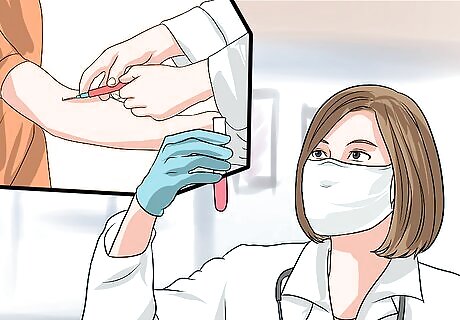
Ask your doctor to perform the test. There’s no need to worry about an invasive procedure. Your doctor can test your levels with a simple blood test. Since testosterone levels are at their highest in the morning, your doctor will likely have your blood drawn between 7 a.m. and 10 a.m.
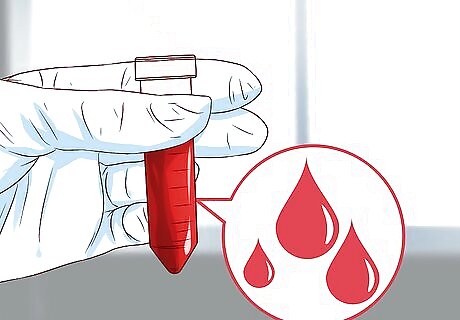
Interpret the results. SHBG levels can be misleading. If they are high, that doesn’t necessarily mean that you don’t have enough free testosterone. Talk to your doctor about what various results can mean. It is likely that your doctor will run the test more than once. Listen carefully when they explain their findings and don’t be afraid to ask questions.
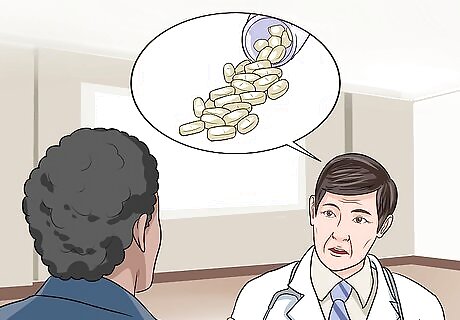
Ask your doctor about limiting certain medications. Certain prescription medications have been shown to increase SHBG levels. If your doctor recommends lowering your SHBG levels, you should go over your list of current medications together. Some medications that can raise SHBG levels are: Raloxifene Tamoxifen Spironolactone Metformin
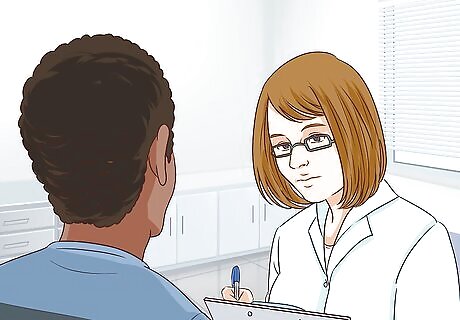
Formulate a treatment plan with your doctor. There’s some debate over whether it is actually safe and effective to treat low testosterone. In some cases, your doctor may advise a course of non-action. If they do recommend treatment, discuss dietary changes and supplements. If they recommend medication, make sure to ask about possible side effects or reactions.
Taking Supplements
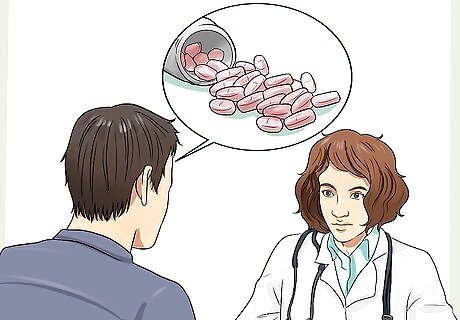
Take Boron. 10 mg a day may help lower your SHBG levels. Look for an ionic boron supplement for easy absorption. Talk to your doctor before taking Boron. Boron may also lower inflammation. Many websites recommend supplements, but so far there is very little scientific evidence that supports this.
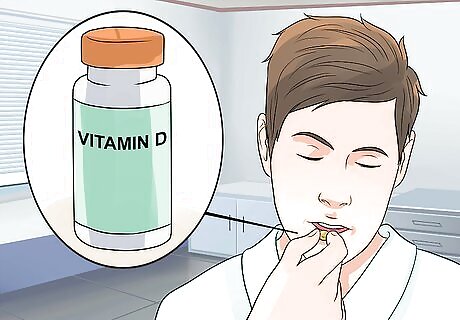
Use Vitamin D to lower your levels. Adults need 15 micrograms (600 iu) of Vitamin D each day, but some people may require more. This supplement can also help people with thyroid conditions, high blood pressure, and many other health concerns. Make sure to consult your doctor about the right dosage for you. While some health-focused websites recommend Vitamin D to lower you SBHG levels, this hasn't been verified by the medical community.
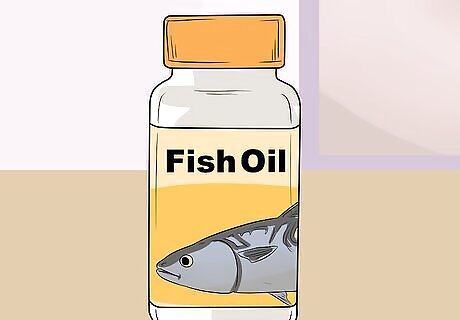
Consider a Fish Oil supplement. Because Fish Oils have a weak estrogenic effect, they may act as an anti-estrogen and this may help to lower your SHBG levels. There is some debate over whether or not Fish Oil is effective. If you want to try this supplement, ask your doctor for their opinion about dosage and uses. You don’t want to take a supplement just for the sake of it. Many medical professionals do not believe that Fish Oil supplements are beneficial.
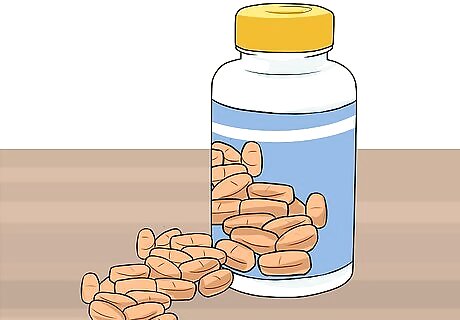
Try Magnesium capsules. Some studies suggest a link between magnesium supplementation, SBHG levels, and testosterone. When looking for a supplement, choose either magnesium citrate or magnesium glycinate. You will need to consult your doctor, as dosages vary greatly from patient to patient. Make sure to take magnesium supplements with meals. You should always swallow the pills whole instead of chewing them.




















Comments
0 comment